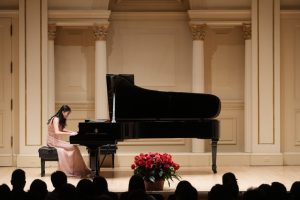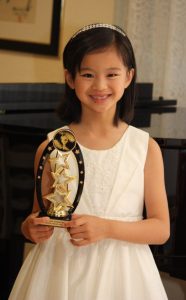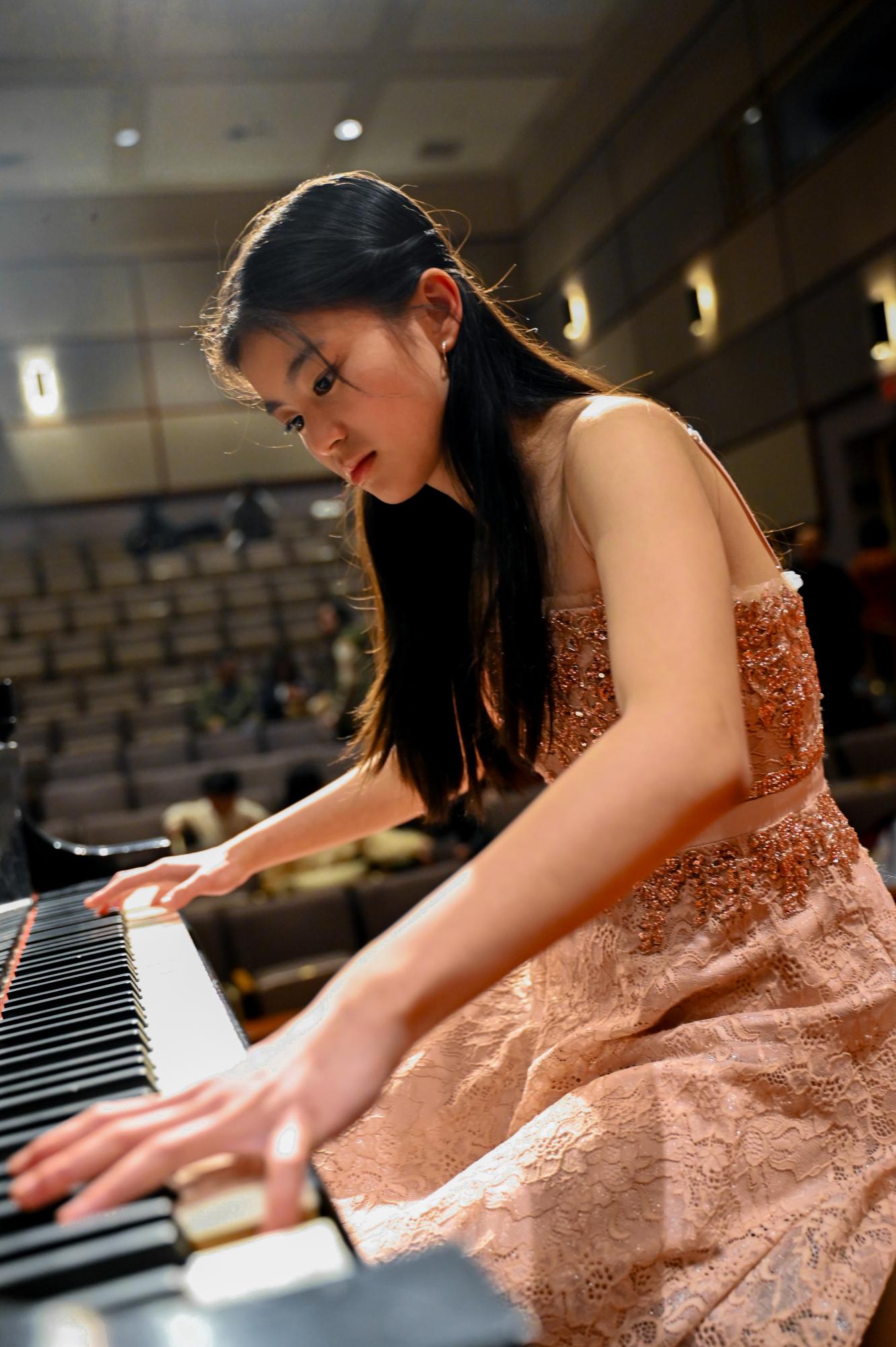A piano’s action is the ultimate translation: from composer through pianist through keys through hammer to note. Each iteration represents a deposit of personality, an augmentation of collective expression. Within these mechanical layers, who controls the final product?
Waiting in the wings at Carnegie Hall, Mindy Truong (10) takes a few measured breaths. The applause fades with her stage fright. Beethoven may have written the “Appassionata” three centuries ago, but the piece waits incomplete without the pianist, conduit for emotion from page to ear, now settling onto the leather bench.
“I think of the piano like a blank canvas,” Mindy said. “When I’m playing, I get to sketch a drawing or paint how I feel. I play with my fingers on wood, and I get to immediately hear the rich sounds I produce.”

She performed at Carnegie Hall to commemorate her 2022 second-place finish in American Protégé’s Music Talent Competition. A year later, she took to the Walt Disney Concert Hall, this time for a victory in the Golden Classical Musical Awards.
Mindy first began playing at four years old, but the crescendo of her piano career began after a second-grade switch to a new piano teacher. Under her guidance, Mindy learned to listen beyond the music to its message. She began competing at seven years old.
In fourth grade, she performed Mozart’s “Fantaisie-Impromptu” on the Bösendorfer piano at the Rothschild Performing Arts Center’s ribbon cutting. Playing in front of the crowd, Mindy realized what it meant to express herself via the piano for the first time.

“Having an audience is very motivating,” she said. “I can perform in my living room and such, but performing well in front of other people is very important to me. I’ve spent so much time working on a piece and expressing my emotions. When someone realizes that, I feel very honored.”
Those special moments onstage in the spotlight, however, are preceded by hours of meticulous preparation. Mindy stresses the importance of intentionality in practice, a tenet cemented after blanking on a piece during a recital. In her daily battle against ease for muscle memory, she hones her tolerance for discomfort. Sticking to a dedicated routine, complete with hand stretches, warm-up pieces and practicing just one hand at a time, helps her thoroughly understand a piece.
“Sometimes my fingers do whatever they want and think is comfortable, even if it’s not right,” she said. “I always want control, but I need to develop it. Sometimes my fingers need to be in a weird position — weird but correct. I have to push myself to get used to that. It calms me when I play a piece I know fully.”
During middle school, Mindy hit a phase of disenchantment with the piano. The pursuit of technical perfection and passion frayed with each other.
“There will always be a part of me that’s afraid of messing up,” she said. “It hinders me a bit because I downplay my successes and don’t think I’m worthy of them. At the same time, that insecurity motivates me to improve.”
This year, Mindy joined the upper school Orchestra as a pianist. Not only did she find a community of musicians, but she also improved her rhythm discipline. In the future, Mindy hopes to play a concerto, specifically Rachmaninoff’s “Piano Concerto No. 3,” with a professional orchestra. As a competitive pianist, she often plays concertos alone or with another pianist. She contemplates the physical instrument’s isolated paradox of duality.
“Playing is typically a very solitary sound,” Mindy said. “In a lot of instruments you can only play the treble clef and can’t necessarily play a whole symphony, but in piano you have two hands. There’s harmony and melody together. It sounds very individual but also very connected.”
Despite her desire for excellence, Mindy does not consider herself a perfectionist. In the cycle of wins and losses of competitive piano, she savors the action of simply playing.
“At the end of the day, I appreciate the fact I’m able to play,” Mindy said. “I will always want more, but being able to play the piece is what piano is for. That’s something I’ll always value more than winning.”



